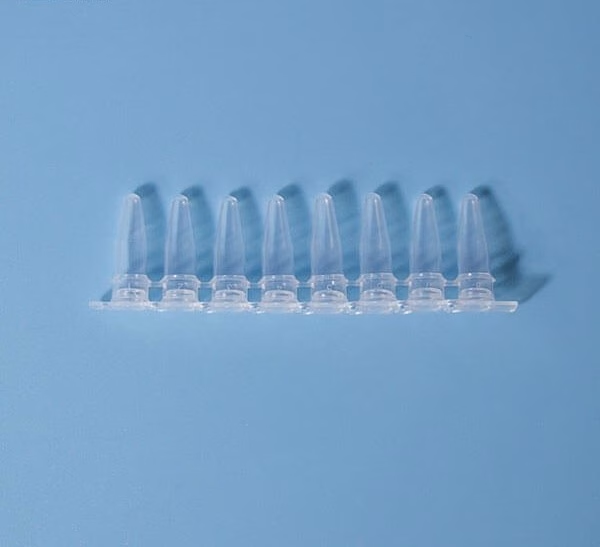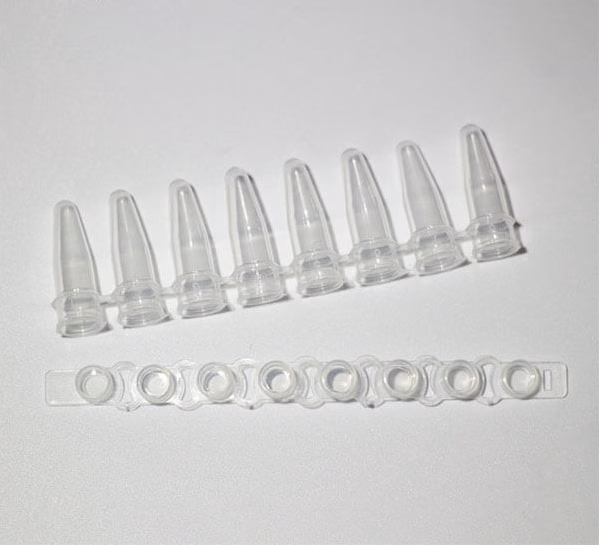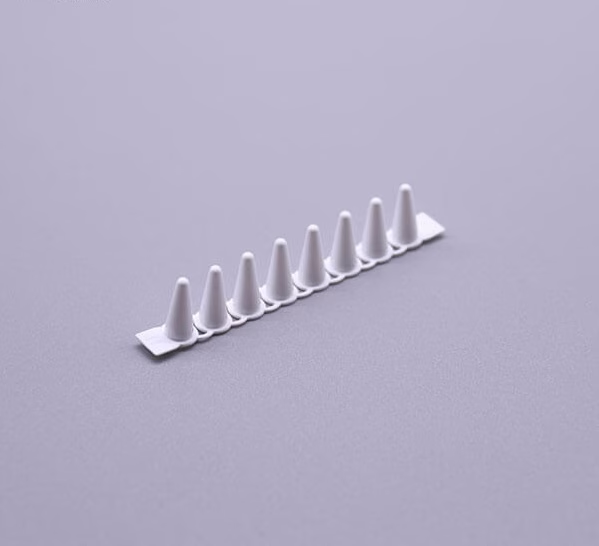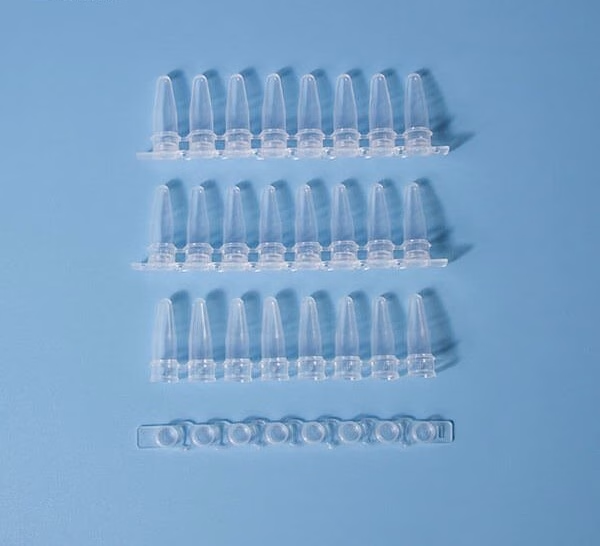PCR Strip Tubes
- Virgin PP, thin wall, uniform thickness, and better thermal transfer ensured
- Non-pyrogenic, DNase and RNase free
- Proven tight seal to avoid contamination, easy to open
- 0.1/0.2mL
Please Contact for Price
- Satisfaction Guaranteed
- Superior Quality
- Custom Solutions
- Comprehensive Support
- Secure Payment Options
Description
PCR Strip Tubes
PCR strip tubes are small plastic tubes designed for use in polymerase chain reaction (PCR) experiments. They are commonly used in molecular biology and genetics laboratories for DNA amplification and analysis.
Features of PCR Strip Tubes
- Material: PCR strip tubes are typically made of clear or translucent polypropylene, a thermally stable plastic that is resistant to chemicals and can withstand the high temperatures used in PCR.
- Shape and size: tubes are slender, cylindrical tubes with a capacity of 0.1 and 0.2 milliliters (ml). They are designed to fit snugly into a thermal cycler or PCR machine, which is used for carrying out the PCR process.
- Format: Arranged in a strip of eight individual tubes. Each tube is connected to the adjacent tubes by a thin plastic strip, allowing the entire strip to be easily handled and inserted into the thermal cycler as a single unit.
- Caps: Each tube has a separate, detachable cap. The caps are designed to provide a secure seal to prevent contamination and evaporation during the PCR process. They can be easily opened and closed, allowing for convenient access to the reaction mixture.
- Compatibility: This tubes are compatible with standard thermal cyclers and PCR machines, which provide the necessary temperature cycles for DNA amplification. They can withstand the rapid temperature changes involved in PCR, including denaturation, annealing, and extension steps.
These are essential tools in PCR experiments, allowing researchers to simultaneously amplify multiple DNA samples in a compact and organized format. Their small volume capacity and compatibility with thermal cyclers make them ideal for high-throughput applications and routine laboratory use.









Reviews
There are no reviews yet.